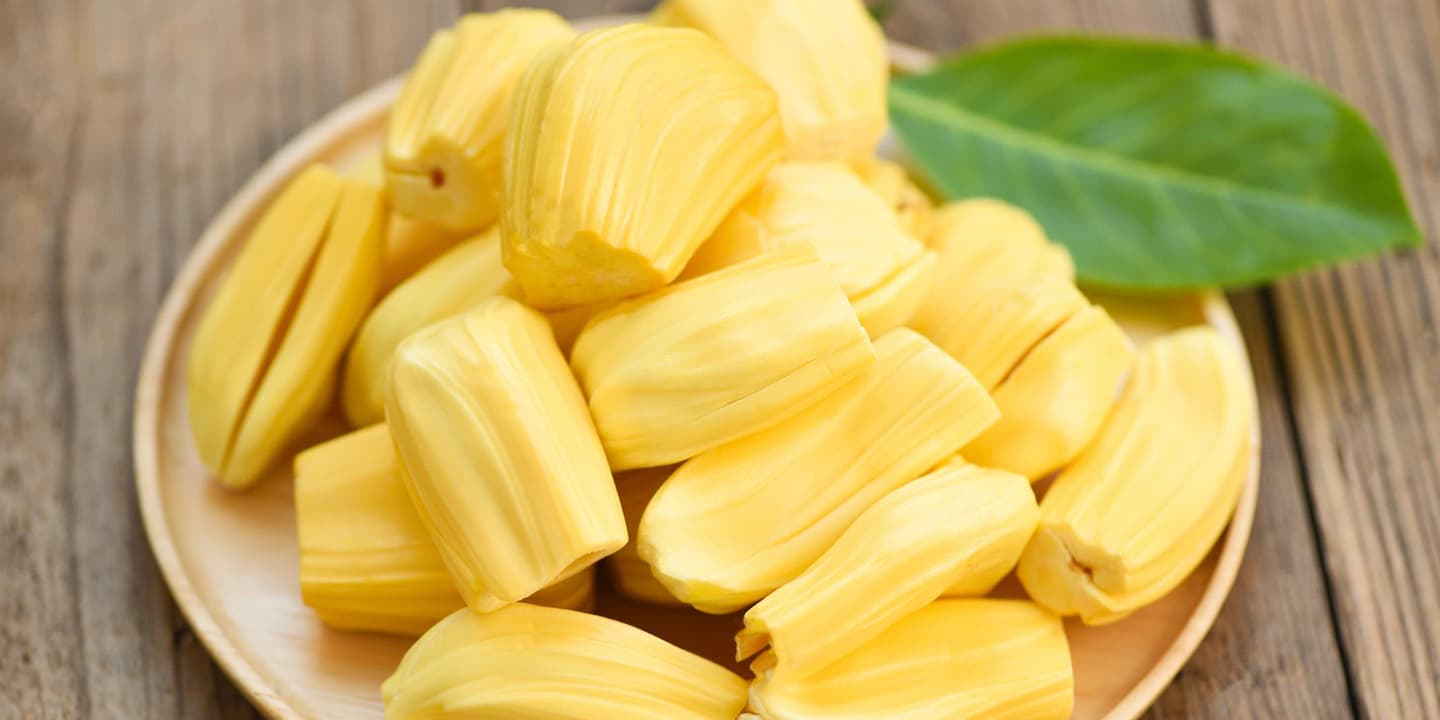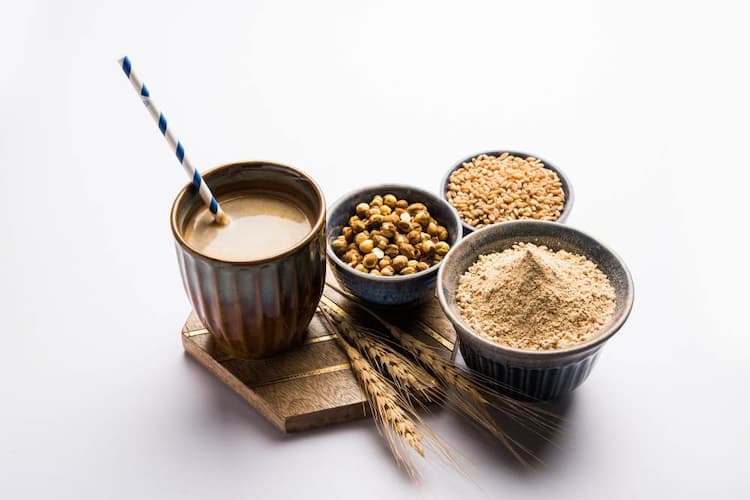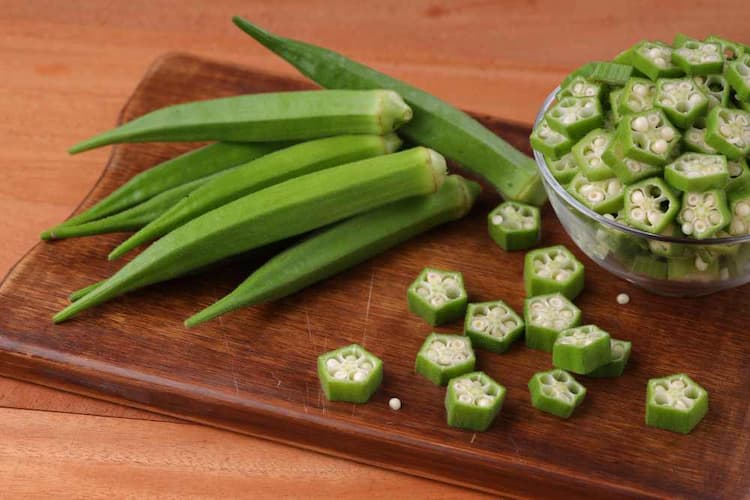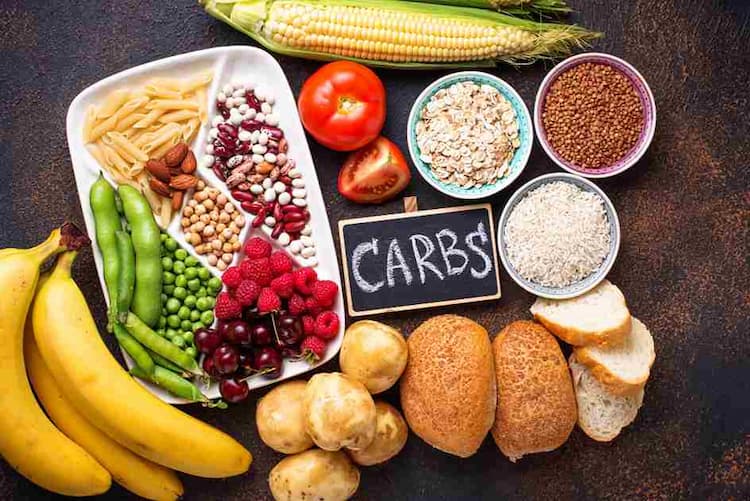Jackfruit Flour for Diabetes Control: Here's What Research Says

Medically Reviewed By
Dr. Ragiinii Sharma
Written By Srujana Mohanty
on Apr 21, 2022
Last Edit Made By Srujana Mohanty
on Mar 17, 2024

It is undoubtedly quite alarming when the statistics suggest that around 100 million people in India will be affected by Type-2 Diabetes by the year 2030. Type-2 Diabetes Mellitus is a chronic metabolic disorder that leads to heightened blood glucose levels, eventually leading to hyperglycemia in patients with no treatment or management. A recent study concludes that Jackfruit flour is a beneficial inclusion in medical nutrition therapy to manage Type-2 diabetes. Predominantly found in the world's tropical regions, Jackfruit is a very common fruit grown in the Western Ghats of India. It is consumed as a vegetable in its unripe form as well as eaten as a fruit when it is completely ripe. Since ripe jackfruit has a very high sugar level, there are concerns about eating it among Type-2 diabetes patients. However, on the flip side, jackfruit is enriched with carotenoids, proanthocyanidin, flavonoids, volatile acids, sterols, and tannins. It doesn’t stop there. Prior scientific research ascertains the effective anti-diabetic properties of jackfruit, especially due to the diverse presence of phytochemicals in it. Biworo et al. report that the primary mode of action of these chemicals is inhibiting lipid peroxide formation in the bloodstream. Owing to these findings, researchers from Kerala further looked into jackfruit's nutritional and glycemic value as a potent alternative for rice for Type-2 diabetes patients. Kerala demonstrated a reduced demand and need for antidiabetic medications during the jackfruit season. To further ascertain the use and impacts of jackfruit on the health of diabetics, another study was conducted to assess the impacts of jackfruit flour instead of the actual fruit. The study was a randomized, a double-blind report conducted at the Rajiv Gandhi Institute of Medical Sciences in Srikakulam in Andhra Pradesh. All the included subjects in the trial were randomized using a computer-based, predetermined randomization technique and then divided into two groups.
Group A
Received 15 g of Jackfruit365™ green jackfruit flour with breakfast and dinner meals made with rice and wheat flour.
Group B (Control Group)
Received 15 g of placebo flour with their breakfast and dinner meals made with rice and wheat flour. Following that, the researchers did the randomization at the CRO site. Amidst all the participants, five patients from each group underwent continuous glucose monitoring for 14 days straight. The maximum period of study participation for each subject was 13 weeks. The breakdown of the green jackfruit flour’s nutritional facts includes:
- Calorie – 108 kCal
- Carbohydrates – 20 g
- Dietary fiber – 4 g
- Soluble fibers – 1 g
The nutritional facts of the placebo flour include:
- Calories – 146 kCal
- Carbohydrates – 30 g
- Dietary fiber – 2.5 g
- Soluble Fiber – 0 g
Following the randomized selection of the subjects, each participant had to submit their detailed medical history. The primary clinical examination involved the HbA1C evaluation, while the secondary clinical examination involved monitoring the fasting and post-prandial blood glucose, body weight, BMI, etc. Out of the 42 participants in the study, 40 were deemed eligible to proceed with the research and were given the measured jackfruit flour as a replacement for rice and wheat with their meals. Here’s what the researchers recorded:
| Primary Endpoint | |||
| HbA1C reporting | |||
| Group A | Group B | ||
| Week 1 | Week 12 | Week 1 | Week 12 |
| 55.57 mmol/ mol | 52.84 mmol/mol | 55.88 mmol/mol | 56.11 mmol/mo |
According to the initial or primary endpoint of the study, researchers recorded that the participants in Group B who received placebo flour didn’t have reduced HbA1C levels. However, Group A participants who received jackfruit flour witnessed a 0.25% reduction in the HbA1C levels.
| Secondary Endpoint | |||||||
| FPG (fasting glucose) | PPG (postprandial glucose) | ||||||
| Group A | Group B | Group A | Group B | ||||
| Week 1 | Week 12 | Week 1 | Week 12 | Week 1 | Week 12 | Week 1 | Week 12 |
| 7.93 mmol/L | 6.29 mmol/L | 8.14 mmol/L | 7.25 mmol/L | 11.07 mmol/L | 9.03 mmol/L | 10.91 mmol/L | 10.43 mmol/L |
Although researchers didn’t find any positive change in the HbA1C levels in the placebo group, there was a significant reduction in the fasting and post-prandial blood glucose levels in both the groups of participants. Besides these, other considered markers like cholesterol, HDL, LDL, and triglyceride levels remained unchanged in both the groups between Week 1 to Week 12. The prevalence of Type-2 diabetes is increasing at an alarming rate, especially in overweight and obese individuals. Assessing the impacts of jackfruit flour on diabetes management was a first-of-a-kind trial. This is the initial outlook and will need further large-scale research to analyze the mode of action and further procedures that highlight jackfruit flour as a good replacement for the staple rice and wheat in the diet of Type-2 diabetes patients.



